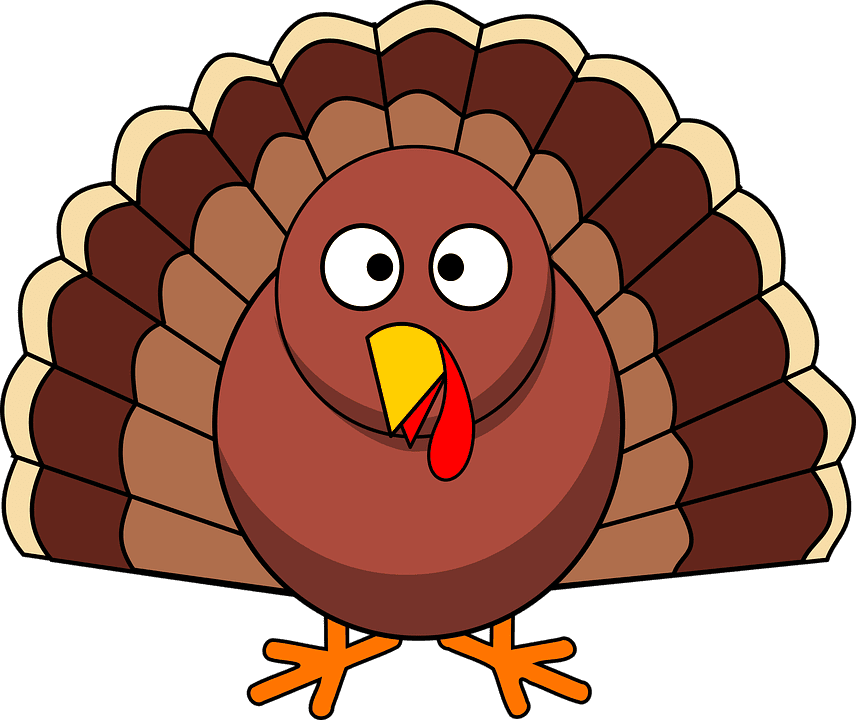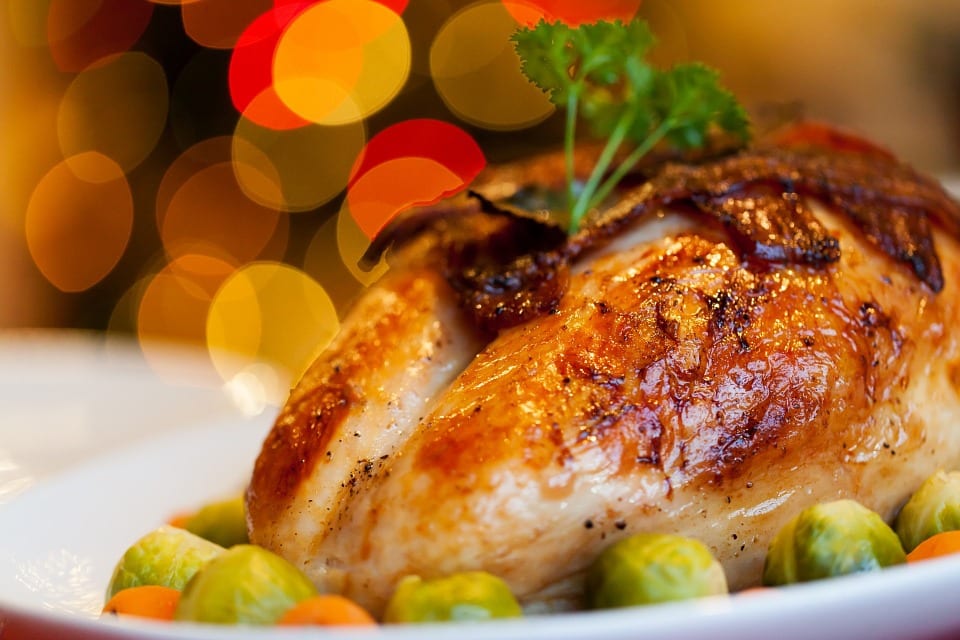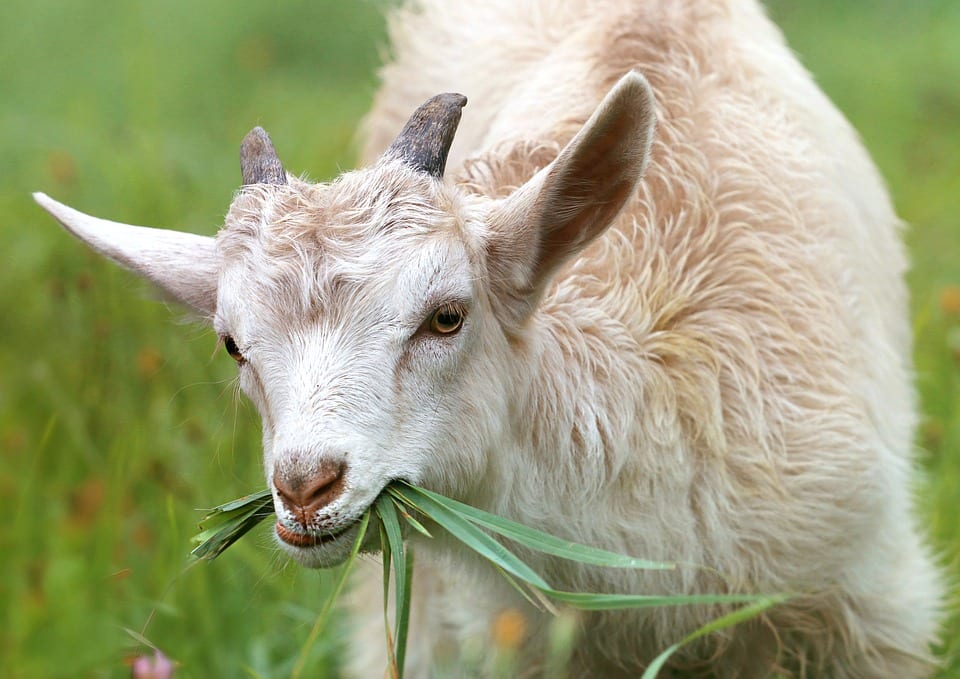Trending Now
I mean, who doesn’t want to think they’re a genius, if only for a day? If you can solve all 5 of these, we’ll give you the title – so give it a go!
#5. The Hiding Turkey

Photo Credit: Pixabay
It’s a week before Thanksgiving, and a sly turkey is hiding from the family set on cooking it for their holiday dinner. There are five boxes in a row, and the turkey is hiding in one of these boxes. Each night, the turkey moves one box to the left or right, hiding in an adjacent box the next day. Each morning, the family can look in one box to try to find the turkey.
How can the family guarantee they will find the turkey before Thanksgiving dinner?
Continue reading when you’re ready for the answer!
#5. Did you find the hiding turkey?

Photo Credit: Pixabay
Answer:
Check box 2 on the first day, then 3 on the second day, and then 4 on the third day. If the turkey was in an even box, you are guaranteed to find it on one of those first three days. If you don’t find it, then it must have started in an odd-numbered box, and on the start of the fourth day, it must be in an even-numbered box. So you then check box 2 on the fourth day, then box 3 on the fifth day, and finally box 4 on the sixth day. No matter what, you will have found the turkey.
In short: check box 2 then 3 then 4, and if you do not find the turkey, check box 2 then 3 then 4 again.
Continue reading for another riddle!
#4. The Thieves Guild

Photo Credit: Pixabay
A man needs to gain access to a notorious but elusive thieves guild, and after snooping around for a few days, he gets a tip about the location of the guild entrance. He observes the entrance for about any hour, noting that the thieves entering are using a passcode system that involves numbers – they are given a number and they reply with a number.
The first person steps up, and the guard tells them “twelve,” to which they respond “six.” The person is admitted. A second person approaches the door, and the guard tells them “six,” to which they reply “three.” The second person is also admitted.
Convinced that he’s got the code down, the man approaches the door to the thieves guild. The guard tells him “ten,” to which he confidently replies “five.” The guard immediately slams the door and a deadbolt slots into place.
What should the businessman have said?
Continue reading when you’re ready for the answer!
#4. What number should the man have replied to the guard’s “ten?”

Photo Credit: Pixabay
Answer:
Three. The answer isn’t to do with multiples of two or half of the original number, it’s to do with how many letters are in the original number.
Continue reading for another riddle!
#3. The lopsided coin.

Photo Credit: Pixabay
This unfair coin does not land on each side 50 percent of the time, but how could you use this coin to simulate the 50/50 odds of a fair coin flip?
It doesn’t matter how biased the coin is or which side it lands on more often. The solution remains the same regardless of the odds of one coin flip.
Continue reading when you’re ready for the answer!
#3. How can you make your “unfair” coin fair?

Photo Credit: Pixabay
Answer:
Regardless of which side the coin lands on more often, and what the probability is that it will land on that side, one thing is always true for an unfair coin – if you flip it twice, the probability that you will get heads and then tails is the same as the probability that you will get tails and then heads.
So you either call HT or TH, and when you flip the coin twice you have four possibilities: HT, TH, HH, and TT. If you get heads twice or tails twice, you simply flip the coin two more times until you get one before the other. Which will occur first, HT or TH, is a 50/50 split, regardless of how unfair the coin is.
So if you ever find yourself in a wager with an unfair coin, make sure you remember how to level the playing field!
Continue reading for another riddle!
#2. The Goat

Photo Credit: Pixabay
With dairy prices lagging, two brothers decide to sell their dairy farm and go their separate ways to invest in raising lambs, instead. They sell each of their cows for as many dollars as they have cows, then use the money to buy lambs for $10 apiece. With the leftover money, they buy a goat.
They have an even number of animals and split them, but the brother who gets the goat wants to be compensated by the brother who has all lambs – how much is the goat worth?
Continue reading when you’re ready for the answer!
#2. How much is the goat worth?

Photo Credit: Pixabay
Answer: $2
First, the brothers could not have started with a number of cows that would sell for a dollar amount that is cleanly divisible by 10, or else they would have no money left over for the goat.
Also, the amount of money the brothers receive for selling the cows must be a perfect square because each cow is sold for as many dollars as the brothers have cows, the amount of money they receive will always be a number multiplied by itself.
And finally, the final number of animals must be even, we know the brothers must have an amount of money that allows them to buy an odd number of lambs. That way, once you add in the goat, you’ve got an even number.
If you plug any of the numbers in that work for the riddle, you will find that the goat must have cost $6 (the number in the ones place). If the goat cost $6, then the brother who receives it is owed half the difference of the cost of a lamb and the cost of the goat, or: 1/2 ($10 – $6) = $2. This is the answer to the riddle, the brother who gets the goat will always be owed $2.
Continue reading for another riddle!
#1. Rock, Paper, Scissors

Photo Credit: Pixabay
Adam and Eve play rock-paper-scissors 10 times, and here is how the games shake out:
Adam uses rock three times, scissors six times, and paper once.
Eve uses rock twice, scissors four times, and paper four times.
There are no ties in all 10 games.
The order of games is unknown.
Who wins? By how much?
Continue reading when you’re ready for the answer!
#1. Who wins and by how much?

Photo Credit: Pixabay
Answer: Adam wins, 7-3
The key to solving this riddle is that Adam played scissors six times. Because there were no ties, that means Eve didn’t play scissors in any of those six games. Now look at the various hands Eve did play. Because she played scissors four times, and none of those could line up with one of the six times Adam played scissors, she must have played all six of her other hands on Adam’s six scissors.
Therefore, six of the games were as follows:
Adam: scissors vs. Eve: rock [Winner: Eve]
Adam: scissors vs. Eve: rock [Winner: Eve]
Adam: scissors vs. Eve: paper [Winner: Adam]
Adam: scissors vs. Eve: paper [Winner: Adam]
Adam: scissors vs. Eve: paper [Winner: Adam]
Adam: scissors vs. Eve: paper [Winner: Adam]
Now look at what is left over. We see that Eve has only scissors left. Therefore, the other four games are:
Adam: rock vs. Eve: scissors [Winner: Adam]
Adam: rock vs. Eve: scissors [Winner: Adam]
Adam: rock vs. Eve: scissors [Winner: Adam]
Adam: paper vs. Eve: scissors [Winner: Eve]
Thanks for playing along!
h/t: Popular Mechanics






